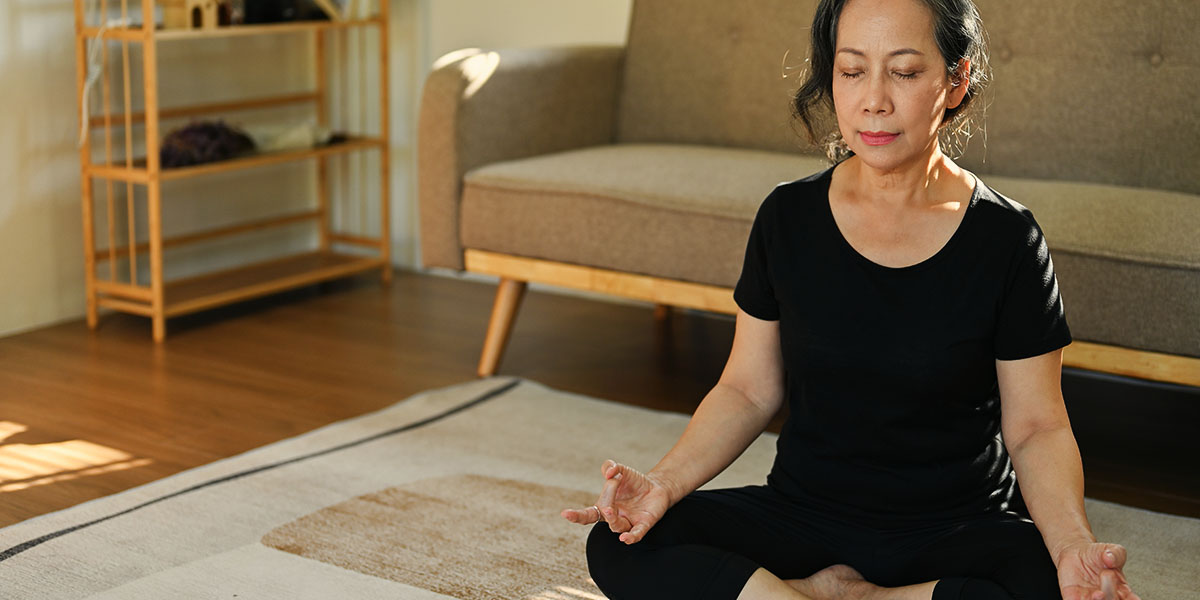Ending a marriage when you’re past 55 presents unique challenges, especially when it comes to your personal finances.
Renting vs. buying a house: Which is better for retirement? (audio)
Thinking of selling your home as retirement nears? Do you buy again, or rent? The decision is about more than the money, say these experts.

Listen to article - 6 minutes
Many people decide to sell their family homes when they retire. But, you still have to live somewhere! So, is it best to rent or buy a place?
Real estate broker Marie-Hélène Ouellette offers both home purchase and apartment rental services. She feels that choosing between these two options is more than just a financial decision. She says, "You first have to consider the pros and cons of being an owner versus a renter. The biggest difference between the options is in the level of responsibility and freedom. You obviously have more freedom when renting since you can leave when your lease is up. And you have fewer responsibilities because the owner takes care of the maintenance. But renters can also have less control than owners over things like decorating, repairs and even pets. And if you've been a homeowner for a long time, losing control and choice isn’t always easy to handle.”
To help you decide, we’ll answer these questions:
Worried you don’t have all the pieces together for retirement?
A Sun Life advisor can help.
What are the disadvantages of owning a house in retirement?
Houses and condos are assets that usually increase in value over time. As a result, buying can appear financially attractive. But keep in mind two things:
- Real estate values do sometimes drop. And as a retiree you won’t have a lot of time to make up for a decline in value.
- When you sell and purchase a property rather than renting one, your money gets tied up. It won’t be readily available to you, if you need it.
What are the downsides to renting a house in retirement?
Josée Jeffrey is a financial planner and tax specialist. She says that “switching from owning to renting isn't a good thing for everyone. Usually, people who are nearing retirement and selling their houses have already paid off their mortgage. If they move to an apartment, they'll have to pay rent.”
Sure, as a renter, you won’t have to pay property tax. However, you may be paying someone else’s. Your landlord may build their property tax into your rent. This means that your annual rent is likely to be higher than what you would have paid in property tax had you kept your home. If you do decide to rent, you can cover rent with the proceeds from the sale of your home. But, you can expect rent to increase over time, taking bigger and bigger bites out of your savings.
Renting vs. owning: How do you decide?
Buying or renting depends on what your objectives are.
Are you counting on money from the sale of your home to be a significant part of your retirement nest egg? Then you may want to consider investing a portion of the proceeds. The question is, which is a safer investment: real estate, or stocks? In this era of volatile stock markets and inflated real estate prices, there isn’t an easy answer.
The ideal solution might be to sell your house and downsize to a smaller, cheaper home. That way, you're still a property owner but you also have money to invest. And there’s the added benefit of not having to pay capital gains tax. That’s if the home was your principle residence.
André Lacasse is a financial planner. He says, “the value of the house you're selling plays a big role in the decision-making process.” Let’s say, for example, you net $500,000 after real estate fees when you sell your house. If you invest that amount (with an annual return of 4.8%, as a safe example), that would give you $2000 per month. You could put that amount toward your rent, keeping your capital untouched.
But, let’s say you netted $150,000 from the sale of your house. If you could get the same rate of return on a smaller investment, you’d earn only $600 a month. And that wouldn’t cover your rent.
Your choice may also depend on whether you plan to be a snowbird. Ouellette adds, “I had clients who owned a property in Florida and spent several months there every year. So, they weren't interested in taking care of another house or condo in Canada. What they needed was a rental.”
Should seniors rent or buy a condo?
Condos are attractive to many buyers but may not be the best choice for two reasons.
1. Possible condo fees.
Some people feel it's financially beneficial to invest the proceeds from a house sale in a condo. But they sometimes forget they'll need to pay condo fees, which can be hundreds of dollars per month. These fees depend on factors like the size of your unit and the building’s amenities.
For example, the average monthly maintenance fee for a Toronto condo is about $0.65 a square foot. This works out to about $627 per month for an average-sized, 965-square-foot, 2-bedroom unit. And those fees don’t include parking or a storage locker. Plus, in some cases, you may also have to put money into a reserve fund. This is common in older buildings. On top of that, unexpected repairs may force you to make special payments.
2. Condo living might not be right for you.
Ouellette remembers a Client who decided to buy a condo but ended up changing their mind. Why? There was a long list of rules and tasks that condo owners had to agree to. It was discouraging to say the least.
According to the Canada Mortgage and Housing Corporation, condo rules cover all kinds of considerations. These might be:
- the amount of people who can live with you,
- whether you can have pets,
- when you can use amenities (like pools and exercise rooms), and
- the appearance and alteration of your unit.
Who can help you decide?
One size doesn’t fit all when it comes to renting or buying in retirement. A Sun Life advisor can help assess your situation and find a solution that best suits your needs. Talk to an advisor. Most Sun Life advisors now offer to meet Clients virtually by video chat.
Read or listen to more:
This article is meant to provide general information only. It’s not professional medical advice, or a substitute for that advice.



